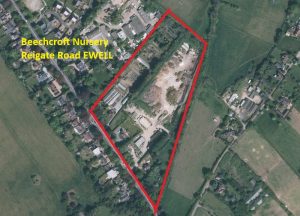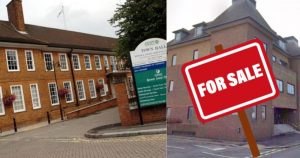Surrey County Council is looking to bank a major cash boost by selling off a string of properties sitting idle across the county. The money is earmarked to help plug budget pressures and support future investment in council services.
Cabinet members gave officers the green light to pursue the sale of six unused council sites at a meeting on November 25. Cabinet papers show the deals are expected to generate significant capital receipts, while saving taxpayers thousands more in ongoing security and maintenance costs. The detailed sale values were kept behind closed doors in restricted documents due to commercial sensitivity.
The properties, spread across Staines, Ewell, Tongham, Wallington, and Mickleham, include former social care and nursery buildings, vacant houses, and small plots of land. The sales follow open marketing campaigns and recommended offers from prospective buyers.
Properties up for sale include:
- 33 Rookery Road, Staines: Former supported living houses, now demolished, being marketed for residential redevelopment.
- Former Fairways Day Centre, Staines: A large, partially vacant building in a flood zone that the council said would be costly to maintain.
- Beechcroft Nursery, Ewell: An empty house and three acres of scrubland, with 11 bids received from developers.
- Land west of Oxenden Court, Tongham: Small 0.03-hectare plot with access and contamination issues.
- 42 Little Woodcote Estate, Wallington: 3-bed house previously leased to Halsey Garton Residential Ltd, now vacant. Sale includes surrender of the lease.
- 2 Pressforward Cottages, Mickleham: Terraced 3-bed house with a leasehold to be surrendered before sale.
Together the properties have been vacant and unused for months, in some cases years, leaving the council to pick up costs for business rates, insurance and preventing vandalism. By selling them, the authority says it will cut those losses and funnel the money into frontline priorities: ensuring the stable provision of services for Surrey county council and the future unitary authorities.
Officials stress that legal checks, including anti-money-laundering safeguards, will be completed before any contracts are signed. Cabinet is also being asked to give senior directors delegated authority to finalise the deals swiftly, avoiding developer drop-out and market risk.
Decisions on the disposals will be made at upcoming Cabinet meetings, with the detailed sale values kept behind closed doors for now due to commercial sensitivity.
Image: Beechcroft Nursery Reigate Road Ewell Epsom – Google maps













